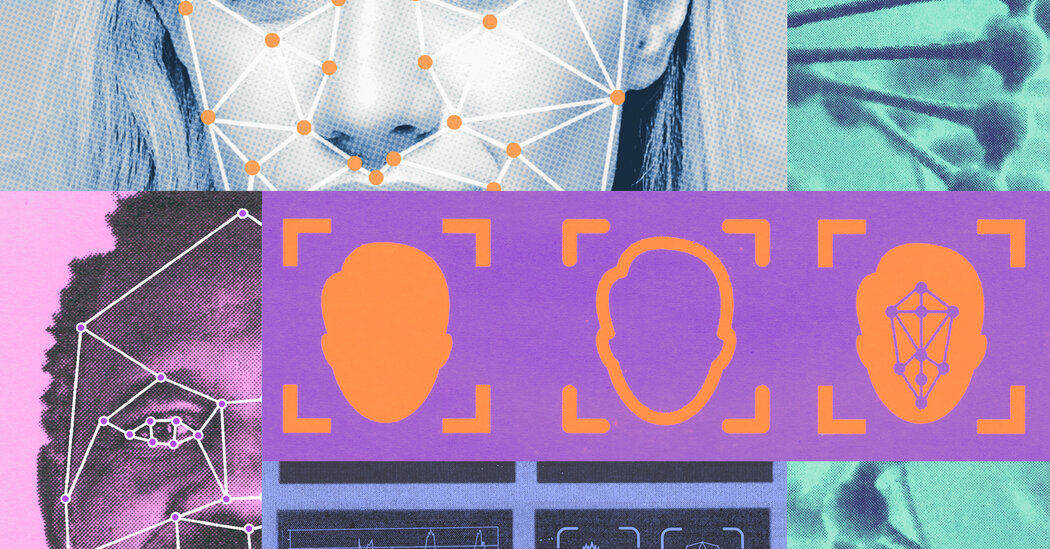The Future of Aging: How AI is Unveiling Biological Age Through Facial Recognition
Understanding Biological Age
Aging is a universal experience, yet it manifests differently in each individual. Some people seem to age gracefully, while others appear to age prematurely, especially during stressful times. Scientists are now exploring an intriguing concept termed “biological age,” which assesses a person’s internal health rather than their chronological age. This emerging field aims to understand how our physical appearance may reflect deeper truths about our health.
The Breakthrough Study
In a groundbreaking study published in The Lancet Digital Health, researchers from Mass General Brigham have employed artificial intelligence (AI) to analyze facial photographs and estimate the biological ages of adults diagnosed with cancer. The study found that participants whose biological age appeared younger than their actual age tended to respond better to cancer treatments compared to those whose biological age was assessed as older.
Implications for Healthcare
The implications of these findings are profound. The researchers suggest that biological age estimates derived from facial analysis could provide critical insights into a patient’s health status. This innovative approach may allow healthcare providers to make more informed decisions in treatment planning, potentially enhancing survival rates and improving overall patient care.
The Role of AI in Medical Assessment
The AI tool developed, known as FaceAge, demonstrated that subjects with cancer appeared five years older than their chronological age, while those without cancer showed a biological age closely aligned with their actual age. This disparity highlights the potential of using facial recognition technology as a non-invasive method to gauge health, offering a promising alternative to traditional biological tests.
A New Way to Assess Health
Experts believe that these facial aging tools hold "extraordinary potential" for the medical community. According to William Mair, a professor of molecular metabolism at the Harvard T.H. Chan School of Public Health, such tools can quickly and cost-effectively provide health assessments, moving beyond the reliance on blood or saliva tests that measure chemical and molecular changes associated with aging.
Validating Biological Age
The relationship between perceived age and biological age is not a new concept. A study conducted in Denmark indicated that individuals who appeared older than their actual age often faced higher mortality rates. This correlation suggests that our physical appearance can be a significant indicator of our overall health and longevity.
Expanding the Research Horizon
The current study is just the tip of the iceberg. Future research may expand the use of facial recognition technology to assess biological age across various demographics and health conditions. This could lead to more personalized healthcare solutions, tailored to each individual’s unique biological profile.
Ethical Considerations in AI and Healthcare
As with any technological advancement, ethical considerations must be at the forefront of implementing AI in healthcare. The potential misuse of facial recognition technology raises concerns about privacy, consent, and the implications of being labeled as "older" based solely on appearance. It’s essential that these technologies are developed and deployed with a strong ethical framework.
The Science Behind Aging
Aging is a complex biological process influenced by various factors, including genetics, environment, and lifestyle choices. Understanding biological age could lead to breakthroughs in how we approach aging and age-related diseases, paving the way for new treatments that target the underlying mechanisms of aging.
Future Directions: Personalized Medicine
The ability to accurately assess biological age could revolutionize personalized medicine. By tailoring treatments based on an individual’s biological age, healthcare providers could enhance the efficacy of interventions, improving outcomes for patients with chronic conditions like cancer.
The Intersection of Technology and Medicine
The intersection of technology and medicine is evolving rapidly. As AI continues to advance, the medical field stands to benefit immensely, particularly in areas like diagnostics and treatment planning. Facial analysis tools represent just one of the many ways technology can transform our understanding of health.
Real-World Applications
In practical terms, the ability to estimate biological age through facial recognition could lead to more proactive health management. For instance, individuals identified as having a higher biological age might receive targeted lifestyle recommendations or preventive treatments to mitigate age-related health risks.
Bridging the Gap in Research
The findings from this study could bridge gaps in existing research on aging. By combining AI with biological and clinical data, researchers can create a more comprehensive picture of how aging affects health and longevity, thus fostering deeper insights into the aging process.
Integrating AI in Clinical Settings
For AI to be effectively integrated into clinical settings, training and resources will be necessary. Healthcare professionals will need to understand how to use these tools and interpret their findings within the broader context of patient care.
The Need for Continued Research
While the study has opened new avenues for understanding aging, continued research is essential. Future studies should aim to validate these findings across diverse populations and explore the long-term implications of biological age assessments.
Conclusion: A New Era in Understanding Aging
In conclusion, the exploration of biological age through facial analysis represents a significant leap forward in understanding human health. By harnessing the power of AI, researchers are paving the way for innovative approaches to aging and health management. As we stand on the brink of a new era in medical science, the potential to redefine how we perceive aging and health is both exciting and promising.








